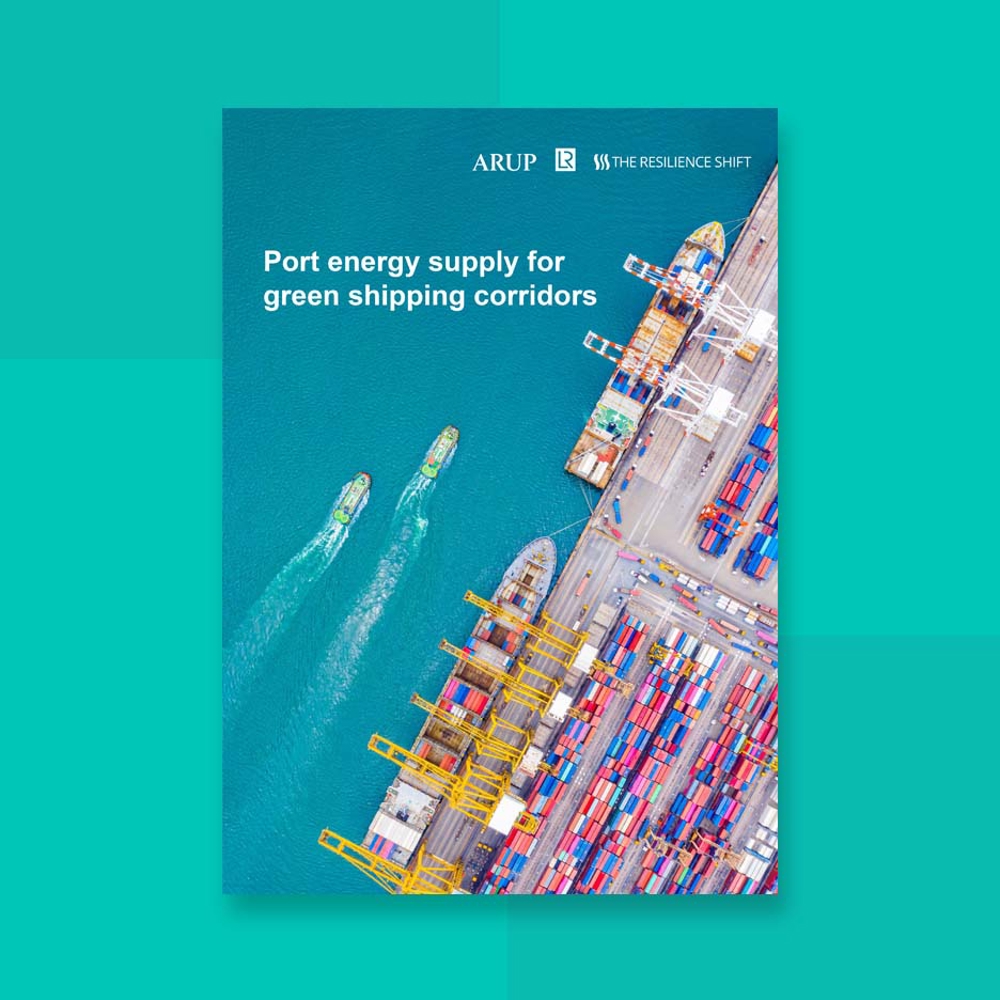Arup, LR and The Resilience Shift study focuses onthe integration of fuel demand for early adopters in green corridors, ports, and energy systems.
A study by Arup, Lloyd’s Register (LR) and The Resilience Shift has outlined the critical role of ports in driving and supporting the case for investment in energy infrastructure.
Focusing on a case study of a green shipping triangle in the Atlantic Ocean, the research highlights the risks and opportunities associated with developing infrastructure for alternative fuels and how ports can unlock investment for the production and supply of alternative fuels.
The study, which brings together research and expertise into the hydrogen economy (Arup), maritime decarbonisation (Lloyd’s Register Maritime Decarbonisation Hub) and resilience for ports (The Resilience Shift), evaluates land-side infrastructure for fuels derived from blue hydrogen (produced from natural gas using carbon capture) and green hydrogen (produced from renewable energy and water). It takes a whole-system view of the challenges and opportunities associated with these technologies – building on Arup’s hydrogen experience across the sectors – demonstrating the need for careful integration with port and energy systems using a sustainability and resilience focused framework.
Regardless of the fuel of choice, the research shows that demand for alternative fuels is intrinsically linked with the concept of green corridors – where the transition can start through a multi-stakeholder initiative. This total value approach can unlock investment and highlight the opportunity for ports as resilient zero carbon gateways to growth, bringing co-benefits in local social, environmental, financial and economic value.
Regardless of the fuel of choice, the research shows that demand for alternative fuels is intrinsically linked with the concept of green corridors – where the transition can start through a multi-stakeholder initiative. This total value approach can unlock investment and highlight the opportunity for ports as resilient zero carbon gateways to growth, bringing co-benefits in local social, environmental, financial and economic value.
Coalitions are forming around numerous green corridor proposals, and this study can support these coalitions and their potential infrastructure investors to adopt a whole value chain approach to potential challenges and demonstrate the scale of the infrastructure projects to undertake.
The authors used an innovative approach of looking at the demand side of shipping and the impacts on the need for and scale of land-side infrastructure. Using a scenario of a green shipping triangle in the Atlantic, connecting Brazil, South Africa and Morocco, the authors explore how this will drive decarbonisation in practice and what the challenges and opportunities are with a whole-system resilience-led approach, where ports act as the linking piece between shipping and the energy systems.
Charles Haskell, LR Maritime Decarbonisation Hub Programme Manager, said: “Green corridors between major port hubs can accelerate and mobilise demand for zero-emission solutions, supporting first mover viability. But the impact goes beyond shipping and the fuel supply. This study models how these changes will impact land-side infrastructure, and the investment and opportunities to transition to low carbon resilient energy systems.”
Filippo Gaddo, Head of Economics, Arup said: “International shipping is a major and vital industry for a global interconnected economy – and its decarbonisation is essential as we move towards a more sustainable society. The scale of infrastructure for low carbon fuel supply is large and there is a need for significant investment in initial path-finders projects. Our study shows that an integrated approach that addresses the total value of the projects can unlock significant co-benefits, strengthening their case for investment. Delivering such projects, while demonstrating their whole-system benefits, will reduce risk of future uncertainty in the sector – helping to futureproof it both in terms of investment and sustainability.”
Mark Button, Senior Engineer, Arup, said: "In our complex and uncertain world, resilience is essential to the business continuity of ports and the critical infrastructure systems that ports connect. We want to see a whole-systems approach to port and energy infrastructure investment that can drive decarbonisation and deliver the multiple benefits of ports becoming resilient, low carbon gateways."






